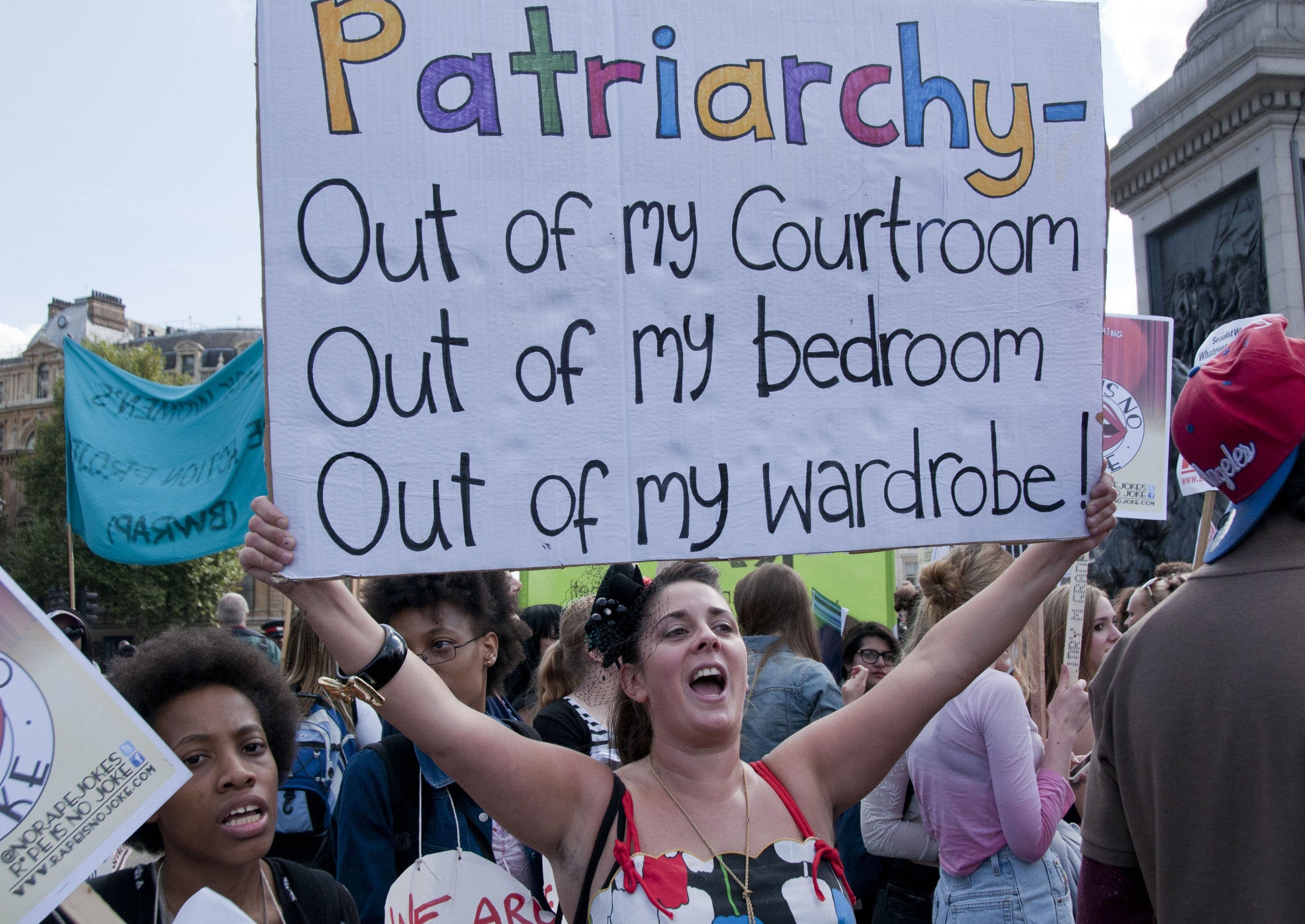I was a Woman Against Feminism too
But as I grew older, and hopefully wiser, my attitude started to shift

I don’t need feminism because it defiles my dreams to be a loyal, loving stay-at-home wife.
I don’t need feminism because men in my life care about me and respect me.
I don’t need feminism because I don’t think it’s necessary to belittle an entire gender in the name of equality.
I don’t need feminism because I am not a victim.
These are some of the quotes posted by women around the world on the social media group Women against Feminism. The group’s Facebook page has over 11,000 ‘likes’, with more posts daily from women saying that modern feminism bullies women, assumes they are weak, is hateful towards men and reinforces stereotypes.
Some of the posts are misinformed. Others… well, I admit I could see their point. This is partly because up until a few years ago, I was making the same points. I was a Woman Against Feminism. At university, I sniggered at the “feminazis” discussing their cause. Silly lesbian hippies, we’ve won the battle, I thought. When asked whether I was a feminist, my stock response was to smile beatifically and say “Well, I guess you could call me a humanist. I’m pro-men AND women, I don’t believe in this battle of the sexes.”
And, let's be honest, 'feminism' has gone a little silly, hasn't it? A woman bares her breasts on a New York street as a ‘feminist statement’. A celebrity wears a controversial red-carpet outfit - ‘feminist statement’. Women post pictures online of their unshaven legs. Feminist statements are the new ‘ironic statements’, the message lost in the melee.
I was brought up with the understanding that I would go into further education, the assumption that I would get a decent job and the reassurance from my parents that I could do whatever I wanted. I didn’t need feminism. While the occasional gender stereotyping or catcalling on a night out can be tiresome, I have never felt particularly threatened by men. I have great male friends, a wonderful father and two upstanding brothers. Men, I argued, are not the enemy. And I can open my own doors and put up my own shelves, thank you very much.
I didn’t need feminism. Most of my battles had been won for me a long time ago, giving me the right to vote, work, travel.
But, as I grew older, and hopefully wiser, my attitude started to shift. In my native Ireland, the debate over legalising abortion blew up in the wake of outrage over the death of a woman, Savita Halappanavar, due to pregnancy complications. The women at the forefront of the marches and candlelit vigils were the same women I had rolled my eyes at in university. I found myself working in a male-dominated profession, where backslapping and innuendo has traditionally been the preferred method of communication (this, thankfully, is not true of i). I was slapped and grabbed while walking down the street, and laughed at when I reacted. I was followed home, with the intent seemingly purely to frighten me. I was called sweetheart, blondie, dear, baby and other more vulgar nicknames.
Far more importantly, I developed a greater understanding of the wider world, where women do not enjoy the same rights and privileges as those to which I am accustomed. My eyes were opened to poverty, prostitution, rape, and inequalities in education and pay.
The UK’s first Girl’s Summit this week threw women’s rights into startling perspective. In Africa, the Middle East and even the UK, female genital mutilation is rife, with an estimated 125 million women having been affected. In parts of India, Pakistan, Nepal and Bhutan, molestation of women, charmingly called Eve teasing, is accepted and even encouraged. Unicef says that 700 million women today were child brides. In Saudi Arabia, women cannot vote, or drive. In Yemen, women cannot leave the house without their husbands’ permission.
And in the UK? All rosy? The gender pay gap still stands at 18 per cent as of 2012. It is estimated that 70 per cent of rapes go unreported. Only one in five on FTSE 100 boards are women. Battles may be being won, but the war is far from over.
The Women Against Feminism, however, obviously feel alienated by ‘modern feminism’. Some tell of how they have been told to kill themselves - by 'feminists' - for having a dissenting voice, or even “you deserve to be raped”. They say the 'feminists' they have encountered have belittled them for choosing to be stay-at-home mothers, or for wearing nice clothes or make-up. They say that feminism, as they know it, gives them less choice, makes them feel weaker than they ever did before. If this is the case, perhaps it is not just some anti-feminists who are missing the point, it is also some feminist groups themselves. Feminism, at its very heart, should be about giving women opportunities, not limiting choices. It should be about freedom, not diktats. And it should be about equality and, yes, humanity, not hatred, fear and demonisation.
Perhaps the best we can do is go back to basics with a quote from Gloria Steinem: “A feminist is anyone who recognizes the equality and full humanity of women and men.”
You may not 'need' feminism, whatever its incarnation. But there are plenty who do.
Join our commenting forum
Join thought-provoking conversations, follow other Independent readers and see their replies
Comments